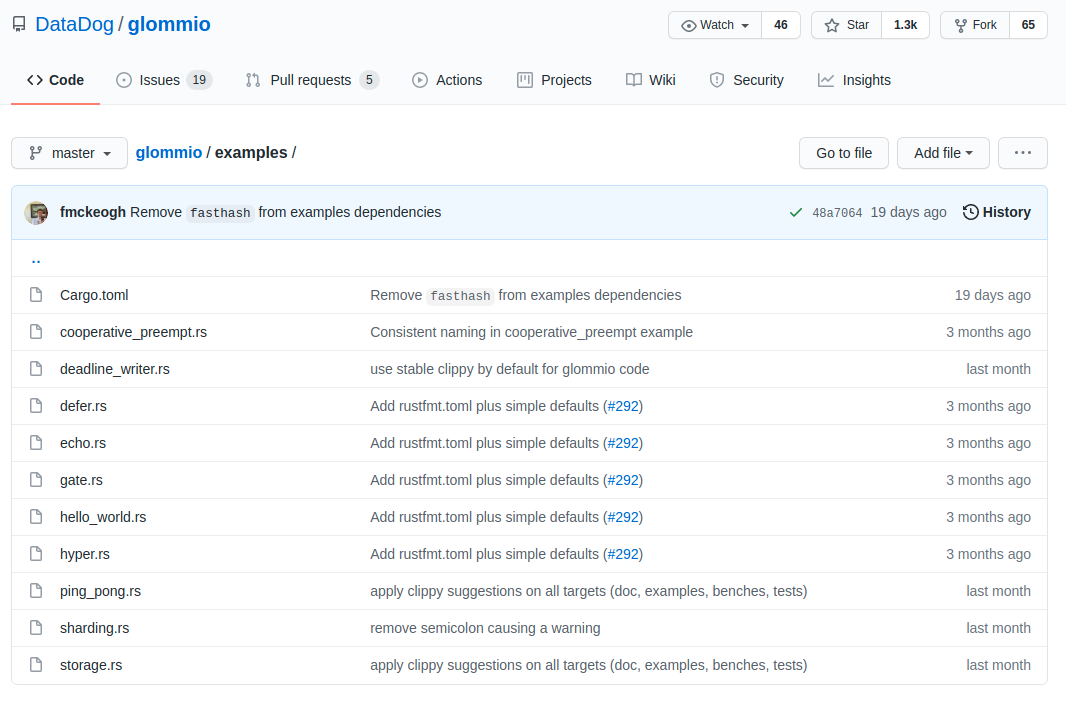Alright, lets take this baby out for a spin!
For a simple task, we'll pull JSON temperature data from a public API and write it to a log file.
I found a weather API in this list; here's what the output looks like:
$ curl -s https://goweather.herokuapp.com/weather/baltimore | python3 -m json.tool { "temperature": "+27 \u00b0C", "wind": "11 km/h", "description": "Partly cloudy", "forecast": [ { "day": "1", "temperature": "+27 \u00b0C", "wind": "14 km/h" }, { "day": "2", "temperature": "29 \u00b0C", "wind": "13 km/h" }, { "day": "3", "temperature": "18 \u00b0C", "wind": "14 km/h" } ] }
I picked Baltimore because it's kind of close to me and "washingtondc" didn't work.
I see that the unicode degrees unit symbol (°) in the payload for the "temperature" field -- does anyone want their API data formatted like that!? Please, just give mthe numbers!
To begin with, I'm going to setup a small playground crate just to kick the tires ...
$ cargo new --bin glomtastic
... begin filling in the Cargo.toml ...
[package] name = "glomtastic" version = "0.1.0" edition = "2018" [dependencies] glommio = "0.4"
... and see what examples the fine folks at Glommio have put together for us:

Hmm. There are some promising directions, but it's going to be a bit more involved than I'm used to.
The hyper.rs example is a server, not a client. Some of the other examples are intended to demonstrate particular parts of functionality moreso than a working application.
But the docs.rs readme has some good entry points:
use glommio::{Latency, Local, LocalExecutorBuilder, Shares}; LocalExecutorBuilder::new() .pin_to_cpu(0) .spawn(|| async move { let tq1 = Local::create_task_queue(Shares::Static(2), Latency::NotImportant, "test1"); let tq2 = Local::create_task_queue(Shares::Static(1), Latency::NotImportant, "test2"); let t1 = Local::local_into( async move { // your code here }, tq1, ) .unwrap(); let t2 = Local::local_into( async move { // your code here }, tq2, ) .unwrap(); t1.await; t2.await; }) .unwrap();
I have concluded this is going to be more involved than my normal routine. For one thing, I won't have my explicit loop to use, i.e.
loop { loop_time = Instant::now(); if loop_time.saturating_duration_since(last.thing) { /* do it again */ } }
...so I'll need to use a Timer instead.
Secondly, although in this proof-of-concept it doesn't actually matter, it's not clear to me at the outset how I will be integrating HTTP parsing with the arrival of new bytes. (Probably simple, but it's not obvious due to lack of familiarity).
to be continued...